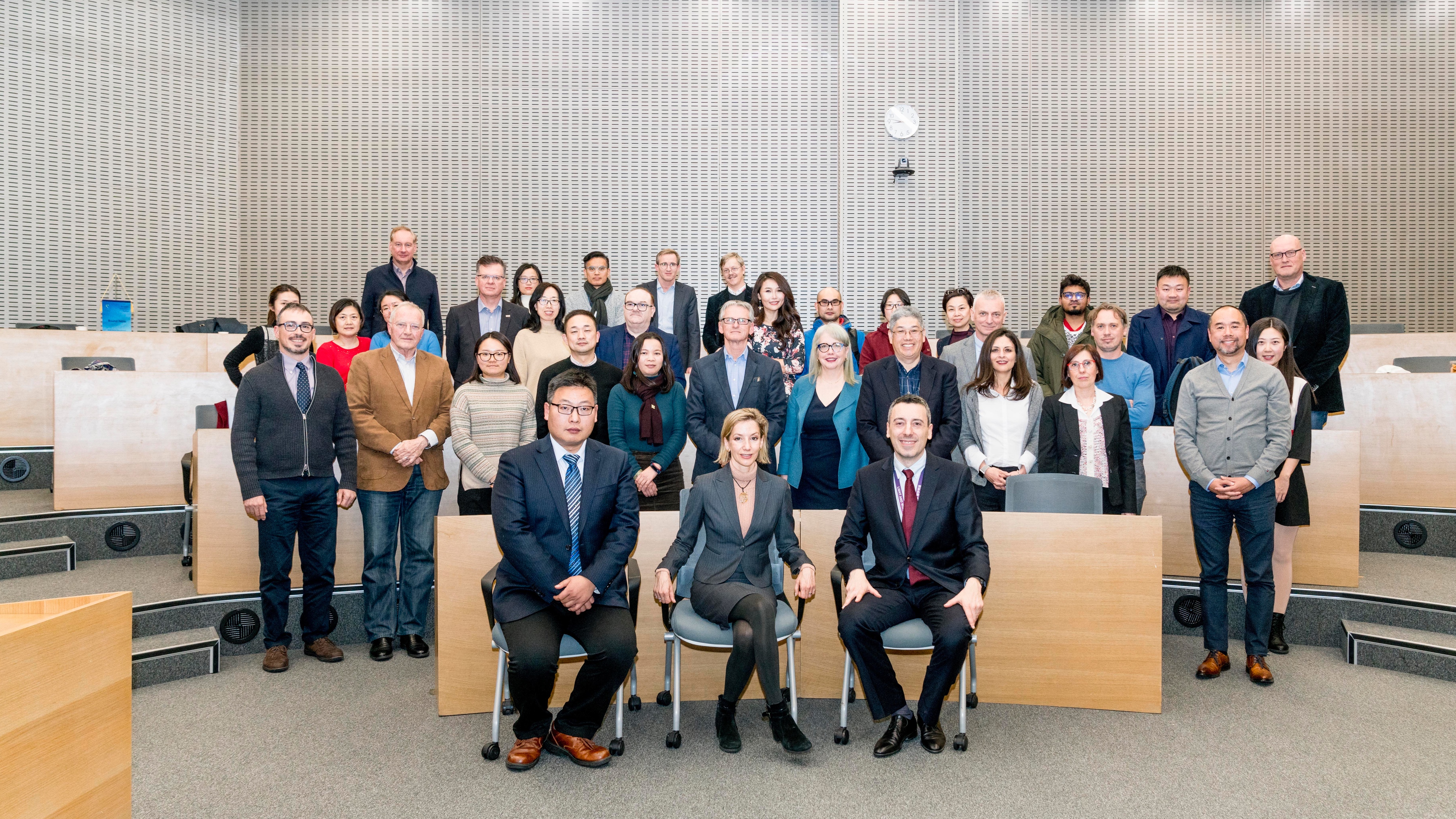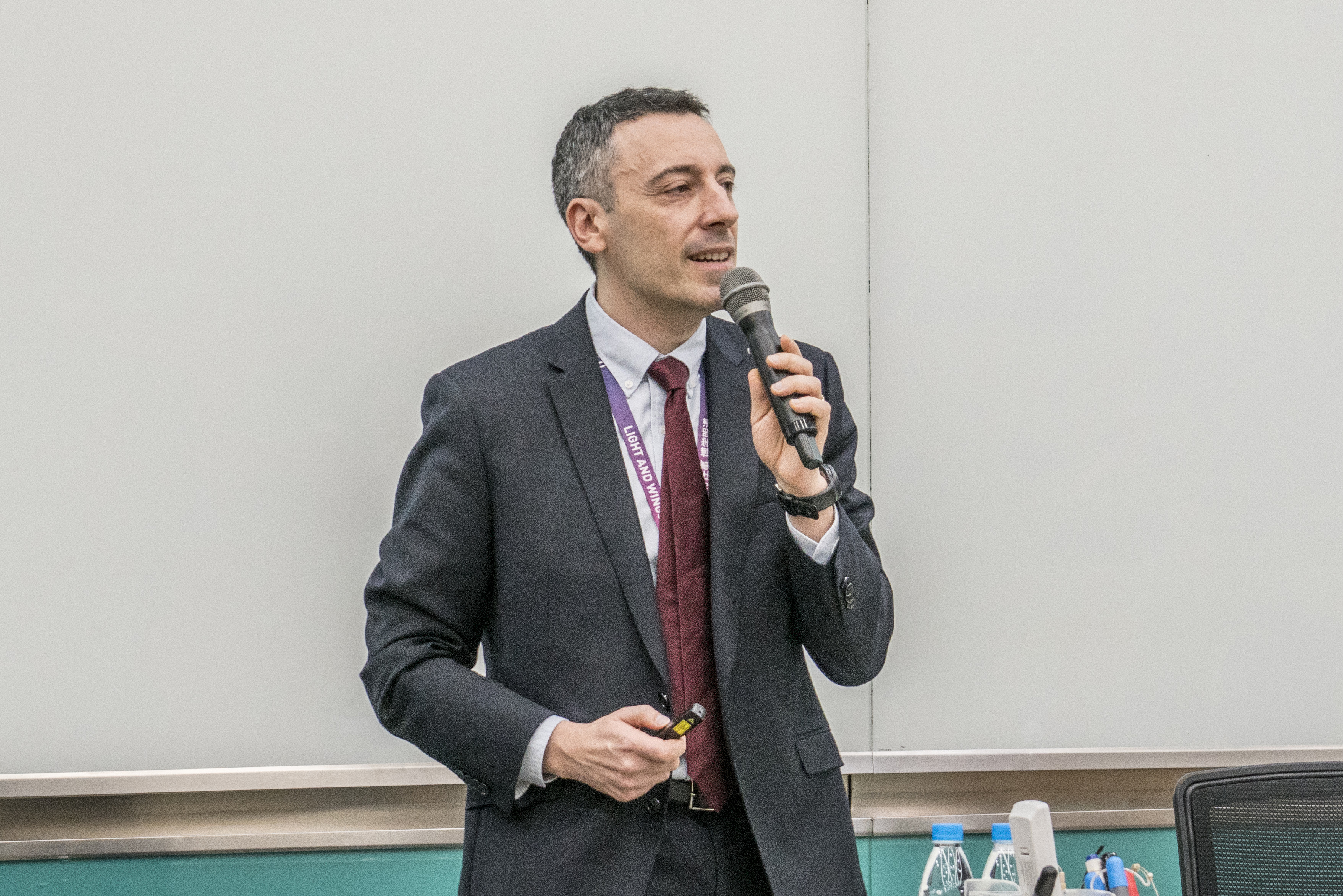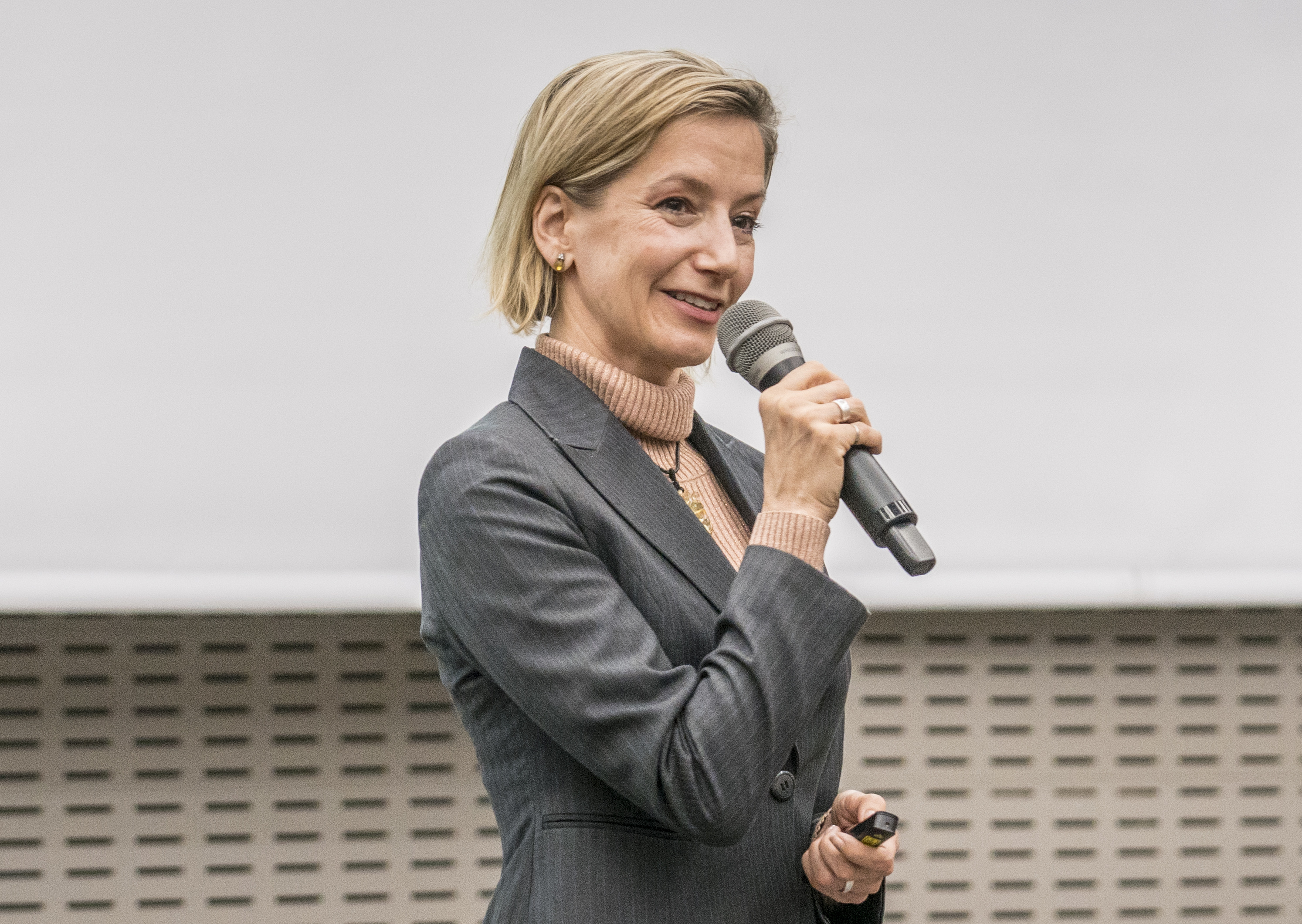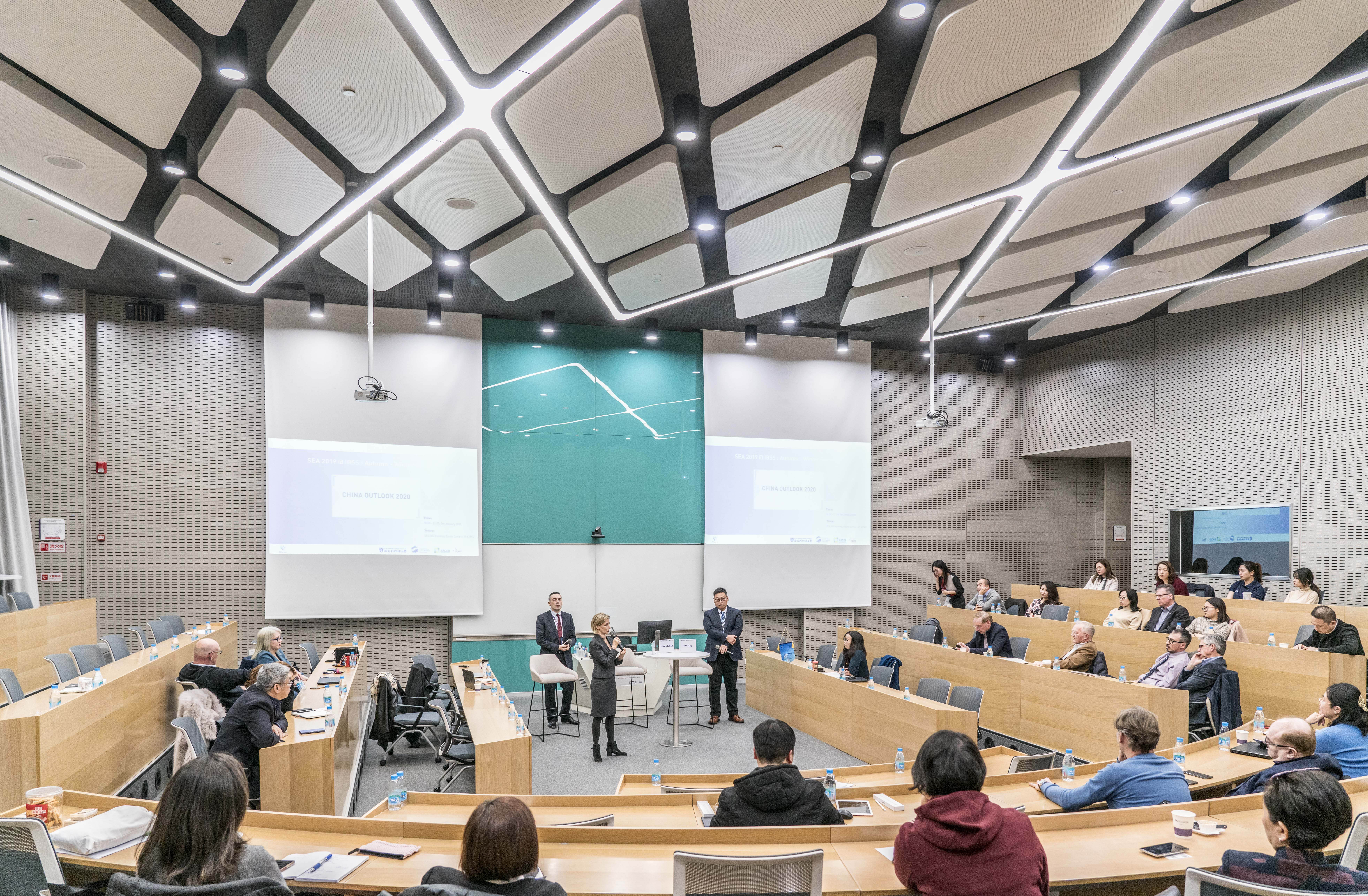14 Jan 2020

More than 70 executives gathered for the last seminar of the Suzhou Executive Academy, hosted by IBSS, on critical issues for the coming year.

Speaking at the Suzhou Executive Academy’s January 9 monthly event, organized by IBSS in conjunction with DUSA, moderator Dr Alberto Batinti began the presentations by commenting: “This year’s Outlook will focus on the role of health, environment, and sustainability, which will progressively occupy the centre stage of policy-making and business opportunity in China.” Dr Batinti first gave an overview into the worldwide historical development, between 1960 and 2018, of the correlation between per-capita income and longevity. He emphasized that income benefits in terms of life expectancy tend to level off as nations develop economically and a certain level of per capita income has been reached. The implications of this research for China, he stated, focus on continuing the positive increase in life expectancy now that income levels have risen overall. He explained: “There is a demographic turning point where continuing to increase life expectancy will have a more prominent role in increasing standards of living. China is at this point, because underwent the demographic transition.” Continuing to increase longevity and productivity, he said, will crucially depend on China’s efforts to improve health-related education and to improve environmental protection.

Turning to sustainability, presenter John Yang next spoke on “Outlook 2020: Impact of Environmental Supervision on Business in China – Challenges and Opportunities.” A senior consultant at Greenment who also tutors for XJTLU’s Environmental Science Department, Mr Yang drew from his professional background to outline the “urban and industrial transformation” now underway in China. He emphasized the Chinese government’s current focus on three “battles”: tackling pollution, reducing poverty and preventing financial risks. He explained how new technology-enabled “enforcement tools” employed by the Chinese government are triggering stricter enforcement of environmental protection regulations. Mr Yang also detailed the official plans to construct an “ecological civilization” in China by 2035, which will fundamentally improve environmental quality and will help to meet the goal of “building a Beautiful China.” One change speeding the transformation, Mr Yang emphasized, is the increased use of digitally collected data regarding the environmental impact of individual companies. Such data on individual suppliers and plants is now shared publicly online – a change triggering more rigorous enforcement of environmental regulations. In this way, Mr Yang said “real-time policy adoption” is leading China to “leapfrog” ahead in advancing toward green manufacturing goals.

Speaking on “Sustainability in Today’s Changing World: Global Shifts & China Trends,” XJTLU Senior Associate Professor Management (adjunct) Dr Laurie Underwood shared the results of her research contributing to the most recent Corporate Social Responsibility Report published by CEIBS. She outlined five key trends: Collaboration on Systems-level Solutions, Disruptive Innovation, Mobilizing Finances, Boosting Supply Chain Transparency, and Leadership Engagement. Especially relevant in China, she stressed, is the growing use of ‘disruptive innovation’ to improve environmental protection monitoring. She explained how digitization, data analytics and other new technologies are boosting the monitoring of industry sectors and individual companies. In addition, China has seen significant improvements in supply chain transparency, aided by the support of company-led organizations such as the China-based The Sustainability Consortium which sets out environmental and social welfare standards for domestic suppliers to follow. Dr Underwood ended her talk by calling on audience members to support the final trend in her presentation – Leadership Engagement – by pushing the CSR programmes in their own companies to align with science-based targets and well-established global sustainability norms such as the UN Sustainable Development Goals.

The event ended with a spirited Q&A. Special thanks to Mr Oscar Wu, DUSA Board Chairman, for the effective partnership established by the two organizations.
By Laurie Underwood
Photos by Ge Lin
14 Jan 2020








